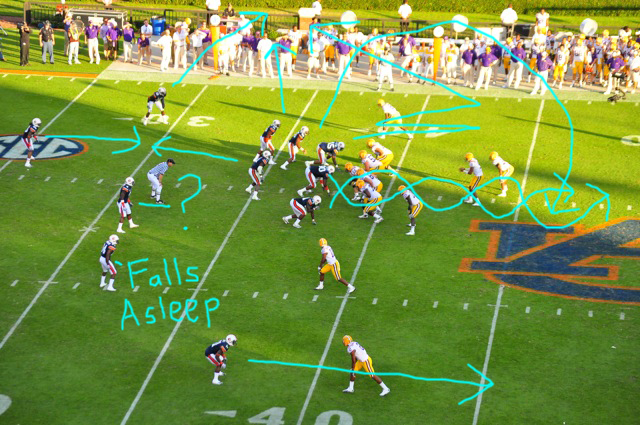When he arrived in Arizona in 2005, Kurt Warner's career looked to be over. In the previous seasons he'd given way to two younger quarterbacks (Marc Bulger and Eli Manning), and he'd just signed a two year deal with the Cardinals to be a place holder until Arizona drafted their quarterback of the future. Instead, Warner revived his career and ended up leading his new team to the Super Bowl in the 2008 season.
Carson Palmer has arrived in Arizona under similar circumstances. Most have already written him off, and hardly anyone is predicting that Palmer will be able to revive his career with the Cardinals. Should Arizona already be scouting quarterbacks for the 2014 NFL Draft, or is there a chance that Palmer could be much better than advertised in 2013?
Simply put, Palmer often times failed to look the part of a starting caliber quarterback in 2012. Too many turnovers and too many missed opportunities led the Raiders to decide to part ways with the once top tier quarterback after just two seasons in Oakland. On paper, the addition of Palmer in Arizona doesn't do much to improve their chances in 2013.
Fortunately for Cardinals fans, scouting isn't based solely on numbers and Arizona didn't acquire Palmer based on stats alone. Palmer's numbers don't necessarily reflect it, but when you put his last two seasons in context there's plenty of reason to believe that he can still be a successful quarterback and help Arizona be competitive in the coming season.
In the past few seasons, it's tough to imagine a quarterback being saddled with a worse supporting cast than what Palmer was forced to work with. In his last years with the Bengals, Palmer had receivers that were more often worried about the activity on their Twitter account more than their play on the field, and a running game that was at times non-existent.

With Larry Fitzgerald, Bruce Arian's vertical passing attack, a recently improved offensive line, and a stable of good young running backs, Palmer appears to be in a much better situation moving forward. Fitzgerald is obviously a known quantity – will Palmer be able to get him the ball in that sort of offensive system?
That's the good news for Arizona. The potentially bad news? Palmer hasn't been in a system that's geared towards stretching the field, but when he has been given the chance to go deep the results have been mixed. Most recently, in 2012, Palmer completed just 14 of 60 of his deep attempts. That's certainly not the sort of stat that will inspire much confidence, but again, context is key. When you factor in the numerous drops that plagued the Raiders' offense in 2012, Palmer's numbers on deep passes would have been slightly above average. There's no reason to think that Palmer shouldn't at least put up the same sort of “average” numbers in 2013, and with a weapon like Fitzgerald to work with, Palmer's numbers should improve notably.
It's debatable just how much an improved Carson Palmer will help the Cardinals in 2013. They're still playing in the toughest division in the league, and with the 49ers and Seahawks battling for NFC supremacy while the Rams continue to improve, the Cardinals could be a vastly better team in 2013 and still finish last in the league. But don't expect Palmer and the rest of the Cardinals to go down without a fight, and you certainly shouldn't expect to see Palmer's career take more steps backwards.
Add The Sports Daily to your Google News Feed!
